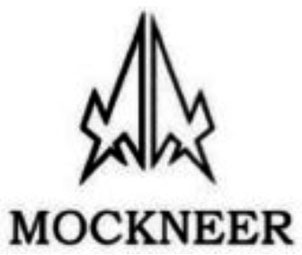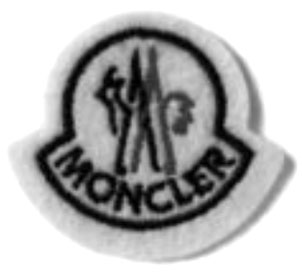Russian trademark law updates in 2016: A summary
18 May 2017Having analyzed the Russian PTO trademark practice in 2016, we can mark certain trends in consideration of trademark related disputes. A number of cases concerning invalidation actions against legal protection of trademarks considerably increased. The leading argument for rejection of granting legal protection for a trademark was Article 1483.3(1) of the Civil Code of the Russian Federation (the Code), which provides prohibition to register as trademarks designations or elements thereof, which could mislead consumers in regard of goods or their manufacturer. The following cases are good examples of the resolution of such collisions.
COTTONBOX vs COTTON BOX
The experts mistook a letter for a consent and the right holder lost the rights to its trademark
The Russian PTO Decision – dated March 18, 2015 under application No. 2011736915 (registration No. 492207) – and the Decision of the Intellectual Property Rights Court dated May 13, 2016 with regard to case No.SIP-374/2015.
 The Russian PTO has recognized as invalid, granting of legal protection to the combined trademark having verbal element “cotton box” under
certificate No. 492207, because it is confusingly similar to the word trademark under international registration No. 1093518 COTTONBOX (word mark)
with an earlier priority.
The Russian PTO has recognized as invalid, granting of legal protection to the combined trademark having verbal element “cotton box” under
certificate No. 492207, because it is confusingly similar to the word trademark under international registration No. 1093518 COTTONBOX (word mark)
with an earlier priority.
To protect its rights, the organization, which lost its trademark, produced an argument that the holder of the prior trademark provided a letter of consent to registration of the disputed trademark. However, the panel of the Chamber of Patent Disputes did not accept this argument, because analysis of this letter has shown that it does not state that the company holding the cited trademark expressed its will to register the disputed designation as a trademark. So, the said letter was mistaken by the examiners of the Russian PTO for a consent-removing obstacle to register the disputed trademark in compliance with the requirements of the Code.
The Intellectual Property Rights Court also did not accept this argument being guided by the following. The Code allows registration as a trademark with regard to similar goods and/or services of the designation, which is confusingly similar to the cited trademark subject, to consent a holder of the cited trademark. That is, if such registration does not result in misleading consumers. Consent shall be expressed with regard to a certain designation being identified according to the application number and with regard to certain goods specified in this application. A letter of consent can be issued for a trademark application, which is similar to the cited trademark, but not just reproducing it with minor changes, which are insignificant for consumers.
The court turned attention to the fact that during consideration of the administrative case, nor during consideration of the court case, was there a confusing similarity of the cited designations, and thus similar goods were disputed. So, the IP Court has agreed with the Russian PTO’s argument that the examiners shall accept a letter of consent from the holder of the cited trademark to registration of a confusingly similar designation as a trademark. However, this is only in cases, when a possible confusion of trademarks by consumers is not obvious. In the described case, taking into account phonetic and semantic equivalence of the dominating verbal element of the disputed trademark, and the cited trademark, a high probability of their confusion by consumers is unmistakable for the court. Thus, such trademarks are not able to perform individualizing function and registration of the disputed trademark contradicts the law.
It may be noted as a recommendation, with regard to this case, that, in particular when requesting a letter of consent from the holder of the cited trademark, it is necessary to formulate clearly the consent request. Further, it is important to check very thoroughly the compliance of the received written answer with the requirements stipulated by the Russian legislation for the letters of consent. It is also necessary to take into account that in case of availability of the trademarks. In particular, of phonetically and semantically equivalent verbal elements responsible for individualization of the same goods and/or services, which are manufactured by different and unrelated business entities. Even in the case of the applicant obtaining a duly executed letter of consent to registration as a trademark of the designation claimed by it, Rospatent may not accept such consent. This refusal to register a trademark will be due to the fact that such registration can mislead a consumer with regard to the applicant manufacturing goods and/or services.
MONCLER vs MOCKNEER
The Russian PTO Decision of July 30, 2016 – with regard to application No. 2012735107 (registration No. 528553) – made following the results of consideration at the meeting of the panel of the Chamber of Patent Disputes on June 28, 2016 of the objection dated April 08, 2016. This was filed by MONCLER S.P.A. (Italy) against granting of legal protection to MOCKNEER trademark (service mark).
 The Chamber of Patent Disputes has considered the opposition filed by MONCLER S.P.A. (Italy) to the grant of legal protection to the trademark
registration No. 528553 . The disputed trademark was registered in the Russian Federation for goods of Class 25 in the name of BEIJING NUOYAKATE
CLOSING CO., LTD, PRC (China). In accordance with the description given in the application, the disputed trademark consists of a MOCKNEER verbal
element, above, which a figurative element in the form of two symmetrically arranged figures formed by the intersection of four triangles is
positioned. The legal protection was granted for the combination of black and grey colors.
The Chamber of Patent Disputes has considered the opposition filed by MONCLER S.P.A. (Italy) to the grant of legal protection to the trademark
registration No. 528553 . The disputed trademark was registered in the Russian Federation for goods of Class 25 in the name of BEIJING NUOYAKATE
CLOSING CO., LTD, PRC (China). In accordance with the description given in the application, the disputed trademark consists of a MOCKNEER verbal
element, above, which a figurative element in the form of two symmetrically arranged figures formed by the intersection of four triangles is
positioned. The legal protection was granted for the combination of black and grey colors.
An opposition to the grant of legal protection to the disputed trademark was motivated by inconsistence of the effected registration with the requirements of clauses 3, 6, and 8, article 1483 of the Civil Code. The arguments contained in the opposition were as follows:
- MONCLER S.P.A. is a rightholder of a series of confusingly similar trademarks comprising a MONCLER verbal element and a stylized image of a rooster:
- MONCLER Company was established by Rene Ramillon and Andre Vincent in 1952, and celebrates its 60th anniversary in 2012. The company founders selected a designation consisting of a stylized image of a rooster, whose head and tail are positioned at both sides of a geometrical figure resembling an image of a mountain, and the company name as such, to label the manufactured products. The said designation has been a company’s symbol and a brand, under which clothes have been manufactured and sold, for many years.
- Over a number of years, the MONCLER marks have become known and recognizable by a wide range of Russian consumers and customers associates, solely with the Italian company, which has a considerable sales turnover and is a renowned fashion trendsetter in the field of winter clothes and accessories. In Russia, clothes bearing the MONCLER trademarks are sold either via brand boutiques or via special discount centers located in the largest cities.
- The disputed trademark makes consumers associate it with the Italian company and its trademarks and, consequently, misleads consumers with respect to a manufacturer of goods.
- The goods bearing the MONCLER trademarks and the disputed trademark may be distributed via the same retail chains.
- The disputed trademark is confusingly similar to the firm name of MONCLER S.P.A.
- MONCLER S.P.A. conducted an investigation that revealed the presence of products imitating the original products in the Moscow market.
- The Chamber of Patent Disputes of the Russian PTO successfully invalidated the preceding variants of the marks belonging to BEIJING NUOYAKATE CLOSING CO., LTD, PRC. Further, MONCLER S.P.A. successfully proceeded against the other party’s registrations in the European Union and in China.

MONCLER S.P.A. submitted numerous pieces of evidence in support of the arguments, such as printed copies from the web-site, a detective’s report, copies of resolutions of Offices from different countries, statements from Russian distributors of goods, copies of invoices for sales, customs declarations, advertising materials, catalogues etc.
Having studied the case materials and heard the participants, the Chamber of Patent Disputes found the arguments contained therein convincing. Pursuant to clause 3, article 1483 of the Civil Code, state registration of a trademark shall not be allowed for designations being or comprising elements that are false or capable of misleading a consumer with respect to a commodity or a manufacturer thereof. According to clause 2.5.1 of the Rules for Drafting, Filing, and Considering an Application for Registration of a Trademark such designations include, particularly, the ones creating an idea of a certain quality of a commodity, a manufacturer or an appellation of origin thereof, which is not true to facts, in consumers’ minds. In accordance with clause 6, article 1483 of the Civil Code designations that are identical or confusingly similar to trademarks of other entities protected in the Russian Federation cannot be registered as trademarks with respect to identical goods and to those having an earlier priority date.
In accordance with the Rules, when defining identity of goods, one shall determine whether a customer can have an idea that these goods belong to one and the same manufacturer. For determining identity of goods, a sort (kind) of goods, an intended purpose thereof, a material type they are made of, sales conditions, a circle of consumers, and other features shall be taken into account.
Pursuant to clause 8, article 1483 of the Civil Code, designations that are identical or confusingly similar to a firm name or a commercial name shall not be registered with respect to identical goods.
The disputed trademark is a combined designation that consists of a MOCKNEER verbal element written by Roman letters, and a figurative element in the form of irregular geometrical figures. The prior marks represent a series of marks united by the MONCLER verbal element, and some of them comprise a figurative element in the form of two triangles and a stylized image of a rooster. The comparative analysis of the conflicting trademarks has shown that the (MONCLER/MOCKNEER) verbal elements are similar according to the phonetic similarity criterion. As far as the graphic criterion of similarity of the verbal elements is concerned, these elements are written by Roman letters having a similar face, which permits acknowledging that they are similar, in view of the graphic criterion of similarity of verbal designations.
The goods in ICGS Class 25 – with respect to which the disputed trademark is registered – and the goods in ICGS Class 25 – with respect to which legal protection is granted to the prior trademarks – are identical, since some of them fully coincide, and some correspond to each other as a sort/kind. Labelling identical goods with marks owned by different manufacturers and having a high degree of similarity makes a consumer believe that these goods/services relate to one manufacturer.
Moreover, the prior firm name of MONCLER S.P.A., which came into existence before the priority date of the disputed mark that also had been used to label goods in ICGS Class 25, was found confusingly similar to the disputed trademark too.
While considering the opposition, the board took into account that MONCLER was established in 1952 and has been involved in the manufacture of equipment for downhill skiing. The MONCLER goods are known all over the world, which predetermines a possibility of misleading a consumer who is well aware of the MONCLER-branded goods. In view of the above, the board recognized the argument of the Applicant that the registration of the disputed trademark was carried out in violation of the Law as substantiated. Subject to the foregoing, the board has concluded that there are grounds for awarding the following resolution by the Russian Patent Office: to satisfy the opposition and invalidate the grant of legal protection to the disputed trademark in full.
The described case is a perfect example of successful proceedings against a trademark, which was registered for the purpose of, inter alia, using the good reputation of famous trademarks and their owner’s name.
To access this website, we request that you read and accept the Terms of Use.











